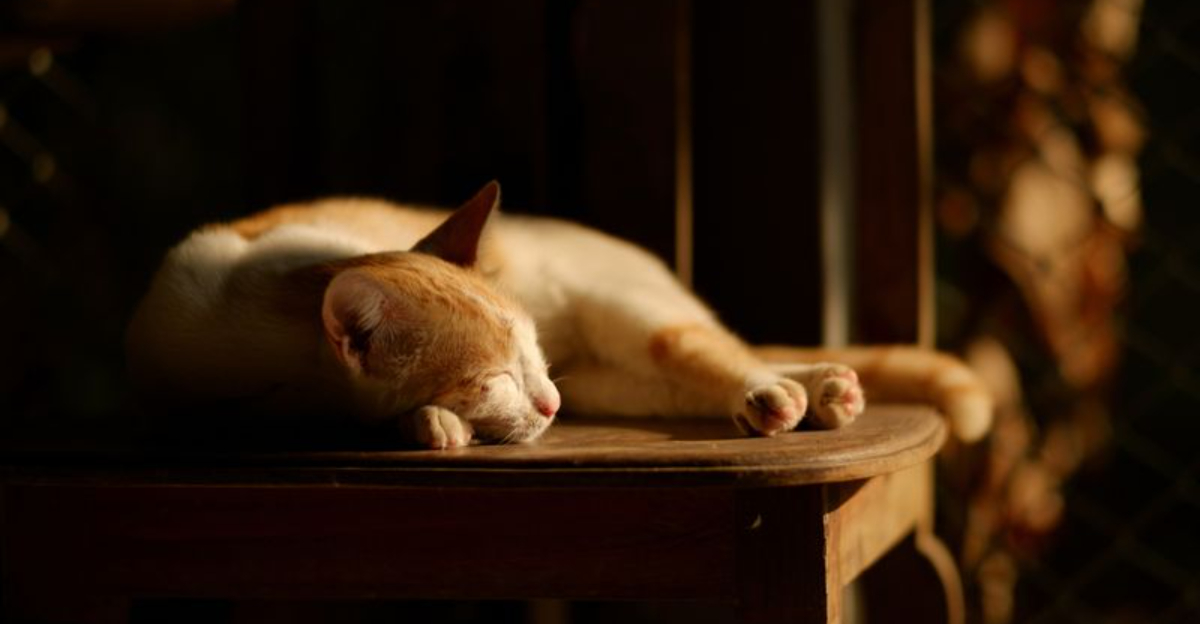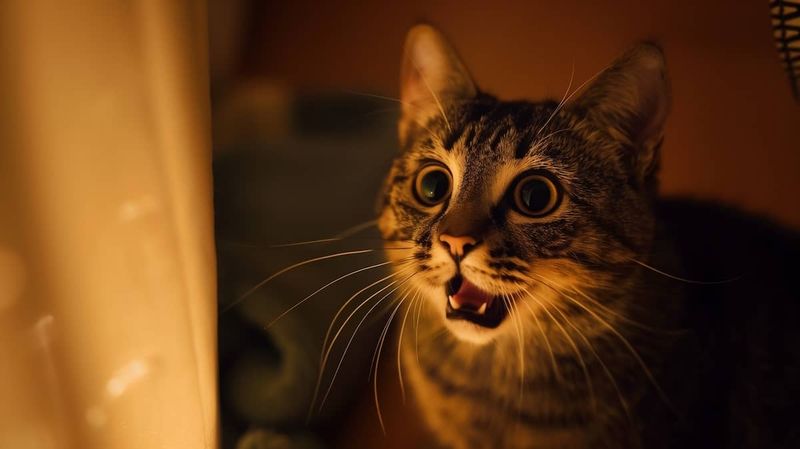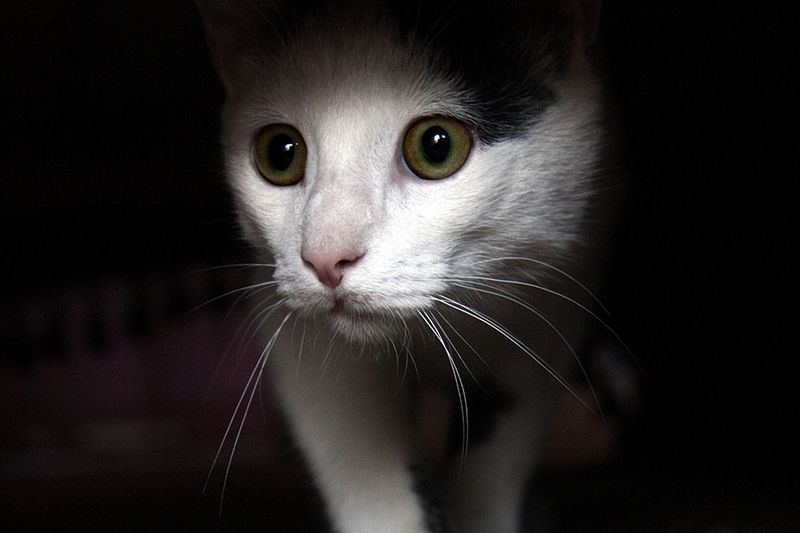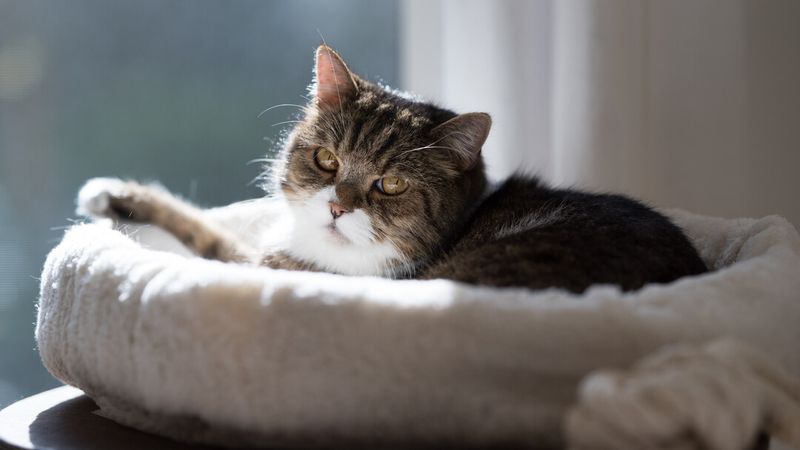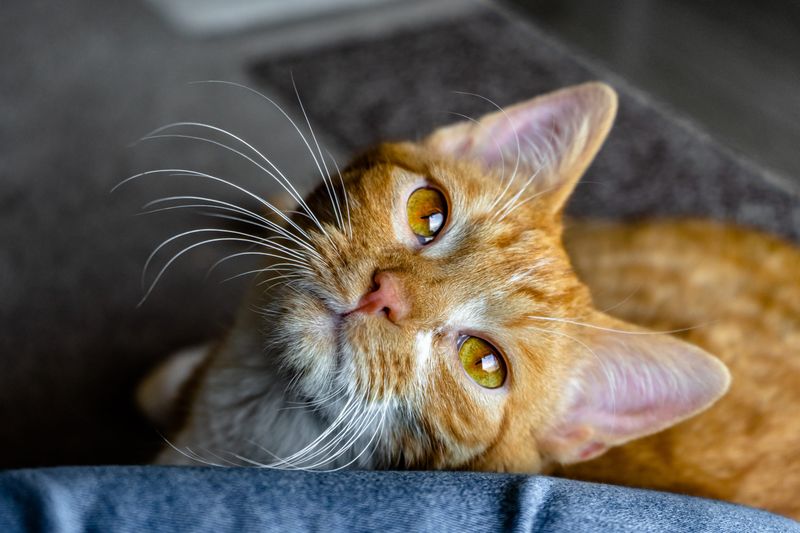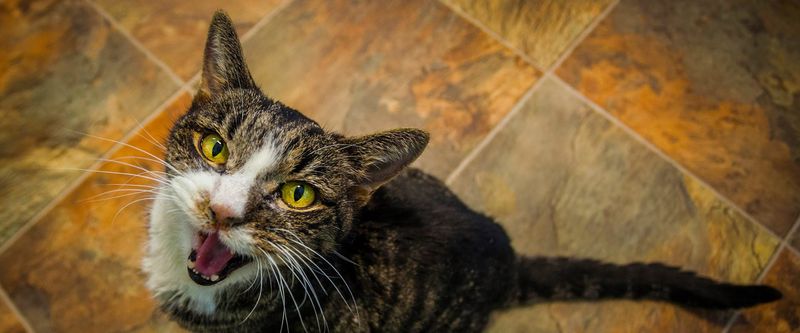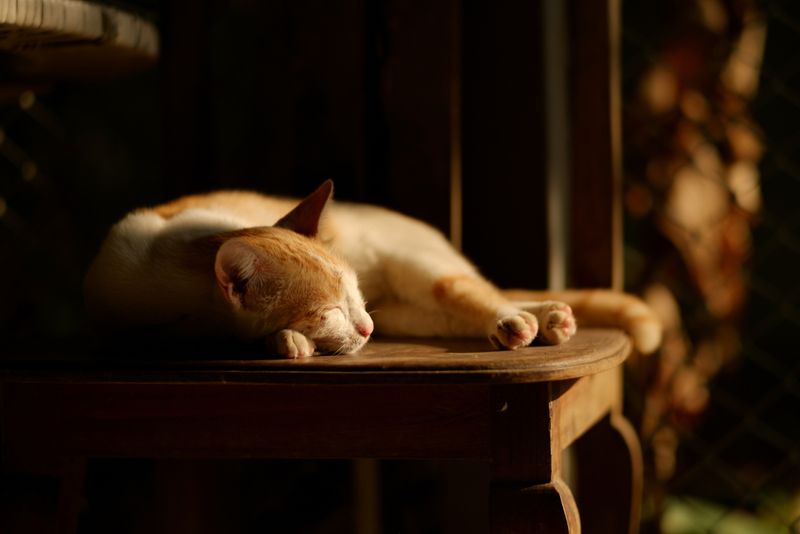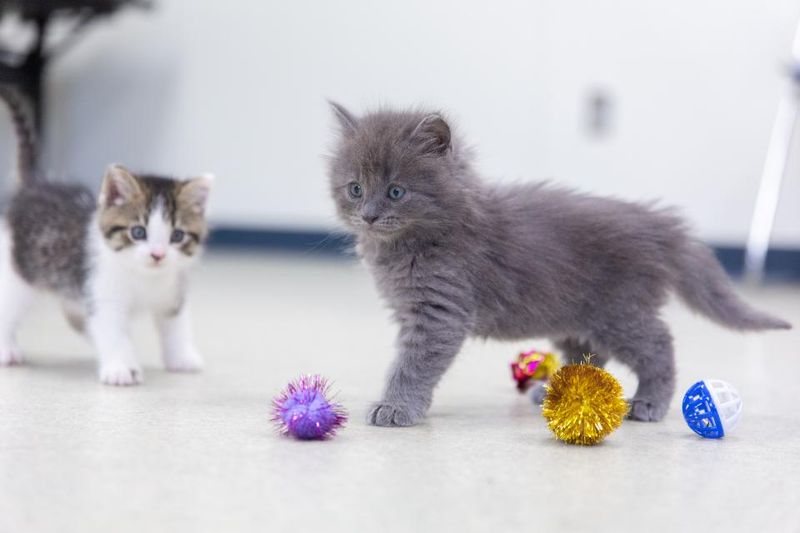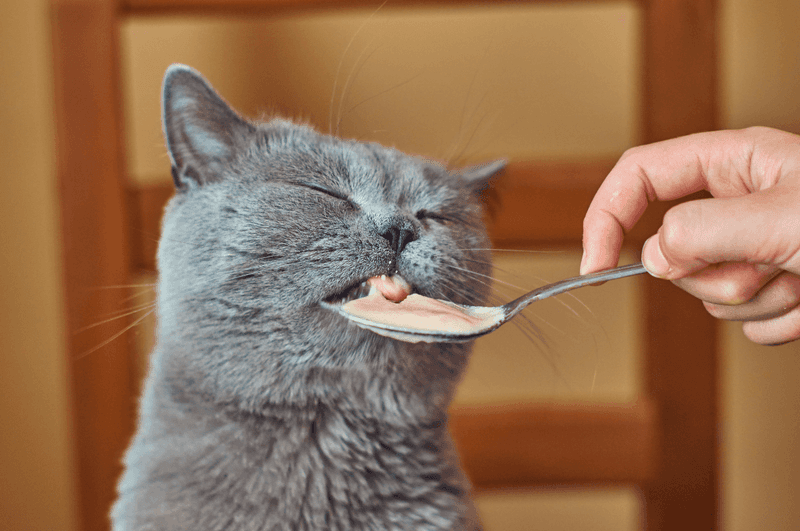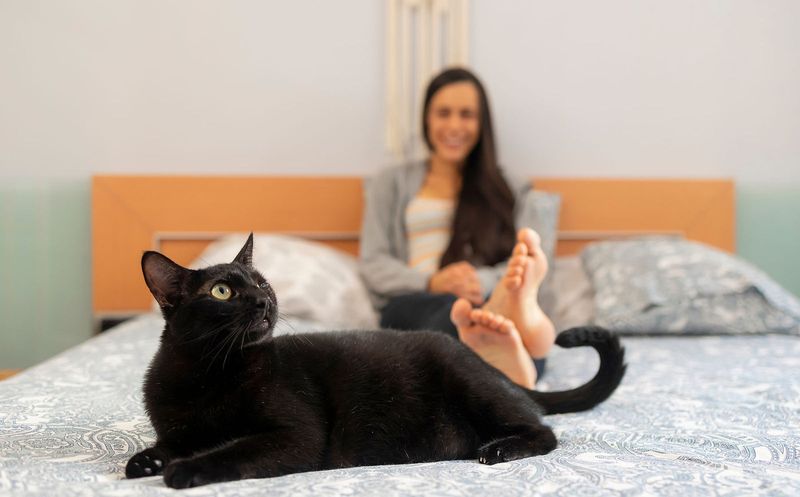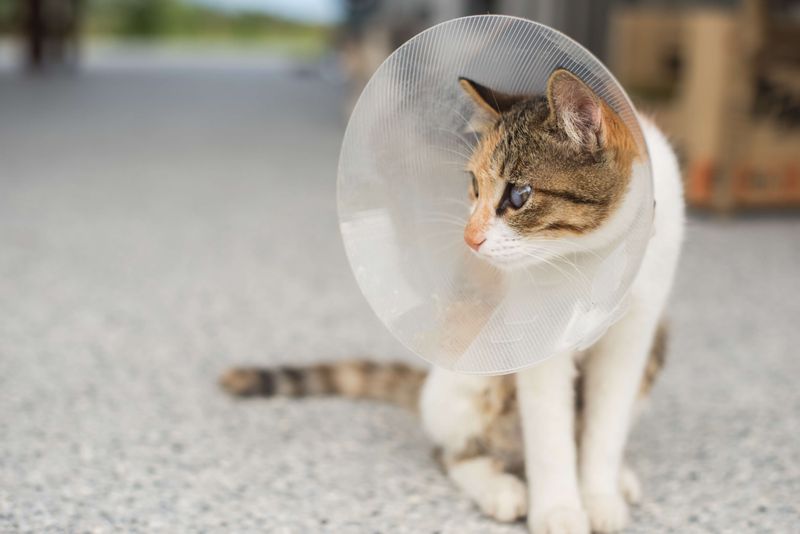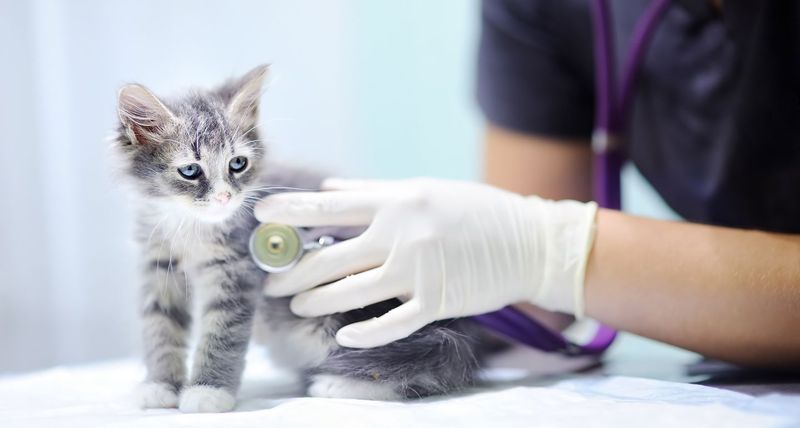📖 Table of Content:
- 1. Hunger or Thirst
- 2. Attention-Seeking Behavior
- 3. Disorientation or Cognitive Dysfunction
- 4. Medical Issues
- 5. Mating Behavior
- 6. Instinct to Hunt
- 1. Ensure Their Needs Are Met Before Bed
- 2. Provide More Daytime Play and Stimulation
- 3. Stick to a Routine
- 4. Ignore the Meowing (If It’s Attention-Seeking)
- 5. Consider Spaying or Neutering
- 6. Consult a Veterinarian
Cats are famously independent creatures, but their nighttime meowing can leave even the most patient cat owners feeling baffled and exhausted. While a few chirps and purrs are normal, persistent loud meows during the night often signal that your feline friend needs something. Understanding why your cat is vocalizing after dark is the first step toward helping them—and you—get a better night’s sleep.
Nighttime is when the world quiets down, and your cat’s behaviors and needs often become more noticeable. Whether it’s a call for attention, a plea for food, or an instinctual drive, many factors could contribute to their nightly serenade. Identifying the root cause behind the vocalizations is key because each reason points to a different solution that can ultimately restore peace to your home.
In this article, we’ll explore six common reasons cats meow at night and practical ways you can prevent it from becoming a nightly ritual. Each cause sheds light on your cat’s instincts, habits, and emotional needs. Whether you’re dealing with an energetic kitten or an aging companion, these insights will help you tailor your approach to your specific situation.
1. Hunger or Thirst
A cat’s meow in the middle of the night could simply mean they’re hungry or thirsty and looking to you for help. Leftover instincts from their ancestors make cats opportunistic eaters, and if dinner was light or water dishes are dry, they may start calling out. Many cats form habits around feeding times and will vocalize if those expectations aren’t met. In some cases, cats with medical conditions such as diabetes may feel increased hunger or thirst and meow persistently. Establishing a consistent feeding schedule can help alleviate these nighttime calls. Providing an automatic feeder or a second water source might also give them a sense of security overnight. Always observe if the meowing seems tied to mealtimes to fine-tune your response.
2. Attention-Seeking Behavior
When a cat feels ignored or lonely, they may resort to meowing to get your attention, especially when they know you are likely to respond. Unlike dogs, cats are often seen as solitary animals, but they deeply bond with their humans and seek interaction. If your daytime schedule is busy or inconsistent, your cat may try to “make up for lost time” when the house is quiet. Some cats even learn that nighttime is the perfect opportunity to capture your focus without competition. Building in daily playtime and affection can often reduce these cries for attention. Gradually teaching your cat that nighttime is for sleeping, not playing, can ease the habit. Be sure not to unintentionally reward meowing by engaging unless it’s absolutely necessary.
3. Disorientation or Cognitive Dysfunction
Older cats might start meowing at night because they are confused, anxious, or suffering from cognitive dysfunction syndrome. Much like humans with dementia, cats can experience memory loss, reduced awareness, and increased anxiety as they age. These feelings tend to become more pronounced in the dark and quiet of nighttime. Wandering aimlessly and vocalizing can be symptoms of this cognitive decline, and they deserve your compassion. Soft lighting, maintaining familiar surroundings, and providing consistent cues can comfort an aging cat. Speaking gently and helping them settle in for the night can sometimes soothe their nerves. A visit to your veterinarian is wise if cognitive dysfunction is suspected, as certain medications or supplements might offer relief.
4. Medical Issues
Pain, illness, or general discomfort is a serious reason behind sudden or persistent nighttime meowing and should never be overlooked. Health conditions like hyperthyroidism, arthritis, or kidney disease can cause restlessness, leading to nighttime vocalizations. Some symptoms might not be obvious during the day but emerge at night when the cat is still and uncomfortable. It’s important to look for accompanying signs like changes in appetite, litter box habits, or weight loss. If there’s even a hint that your cat’s nighttime behavior stems from illness, prompt veterinary attention is necessary. Diagnosing and treating underlying issues often resolves the disruptive meowing. Catching medical problems early not only improves your cat’s comfort but can extend their life.
5. Mating Behavior
Unaltered cats, whether male or female, can become excessively vocal at night when seeking a mate, driven by powerful biological urges. Loud yowling, pacing, and even spraying can accompany this behavior, creating a lot of chaos after dark. Hormonal cycles in cats are heavily influenced by seasons, light, and social cues, and nighttime is prime time for such behaviors. Even indoor cats are not immune to these natural instincts, and their cries can sound desperate and unsettling. Spaying or neutering typically resolves most mating-related vocalizations and also has health benefits. If surgery isn’t an immediate option, consulting with your vet for management strategies can help in the interim. Keeping windows covered and minimizing exposure to outdoor stimuli may also reduce mating-related meows.
6. Instinct to Hunt
Deep within your cat lies the heart of a nocturnal hunter, and sometimes, nighttime meowing is simply a call to action. Cats evolved to hunt small prey during dusk and dawn, meaning their energy naturally peaks when you’re trying to sleep. If they feel under-stimulated, they might vocalize out of frustration or excitement, especially in households without other pets or rich environments. Providing toys, simulated hunting games, and interactive feeders during the evening hours can help burn off this predatory energy. A tired cat is much less likely to cry out in boredom at 3 a.m. Gradually adjusting your cat’s play schedule to align better with human sleep patterns is a proactive strategy. Ensuring they have adequate exercise before bedtime is often a simple yet powerful solution.
1. Ensure Their Needs Are Met Before Bed
Feeding your cat a satisfying meal before bedtime can help prevent the midnight cries for food or water. Many cats feel more secure and content when they know their basic needs are taken care of. A hearty, nutritious dinner followed by fresh water can set them up for a restful night. Consider offering a small portion of their daily food ration right before you head to bed. Some owners also find success with timed feeders that release food at scheduled intervals overnight. When your cat feels full and hydrated, they are less likely to wake you up with pleading meows. Simple adjustments to your evening routine can have a surprisingly big impact on their overnight behavior.
2. Provide More Daytime Play and Stimulation
During the day, ensuring your cat gets enough mental and physical stimulation can reduce nighttime restlessness. Cats that spend their waking hours lounging without exercise often have pent-up energy by bedtime. Offering interactive toys, climbing towers, and play sessions simulates hunting behaviors and satisfies their natural instincts. Scheduling short, energetic playtimes throughout the day keeps them engaged and tires them out. As a result, your cat will be much more likely to settle down and sleep through the night. Rotating toys and introducing new challenges keeps the environment exciting and prevents boredom. A tired cat is often a quiet and content cat once nighttime falls.
3. Stick to a Routine
Creating a consistent daily schedule can dramatically influence your cat’s nighttime behavior. Cats are creatures of habit and thrive when they know what to expect from their environment. Feeding, playing, and resting at the same times each day builds a reliable structure they can trust. When routines are erratic, anxiety and attention-seeking behaviors, like nighttime meowing, can increase. Making even small efforts to stick to a predictable routine can have lasting effects on their sense of security. Over time, your cat will naturally adapt their sleep-wake cycle to match yours more closely. A stable routine reassures them and decreases the likelihood of disruptive overnight vocalizations.
4. Ignore the Meowing (If It’s Attention-Seeking)
Ignoring your cat’s nighttime meows, as difficult as it sounds, is sometimes the most effective solution. When a cat learns that meowing brings attention, even if it’s negative attention, they’re likely to continue the behavior. Staying firm and not responding teaches them that nighttime is not the right time for interaction. It’s important to be consistent, because giving in even once can reinforce the behavior for days or weeks. Providing plenty of affection and stimulation during the day makes it easier to ignore nighttime pleas. Remember that cats are smart and can quickly adjust their strategies if they think persistence will work. Patience and consistency are crucial in teaching your cat that nighttime is for sleeping.
5. Consider Spaying or Neutering
Opting to spay or neuter your cat can eliminate many hormonally-driven nighttime behaviors. Unfixed cats often vocalize loudly and frequently, especially when they sense nearby mates. This kind of nighttime disturbance is not something you can easily train away because it is instinctual. Spaying or neutering not only helps reduce meowing but also contributes to overall health and behavior improvements. Additionally, it minimizes the risk of certain cancers and unwanted behaviors like marking or roaming. Consulting with your vet about the best time to perform the procedure is highly recommended. This simple step often results in a much calmer, quieter pet, day and night.
6. Consult a Veterinarian
Sometimes, the most responsible thing you can do when your cat meows excessively at night is seek veterinary advice. A sudden change in behavior often indicates an underlying health issue that requires professional evaluation. Conditions like hyperthyroidism, arthritis, or cognitive dysfunction might be to blame, and early intervention can greatly improve outcomes. Your vet can perform diagnostic tests and suggest appropriate treatments or lifestyle adjustments. Never assume your cat’s meowing is purely behavioral without ruling out medical causes first. Getting answers from a professional gives you peace of mind and ensures your cat isn’t suffering in silence. Taking action early protects your cat’s well-being and strengthens your bond.
